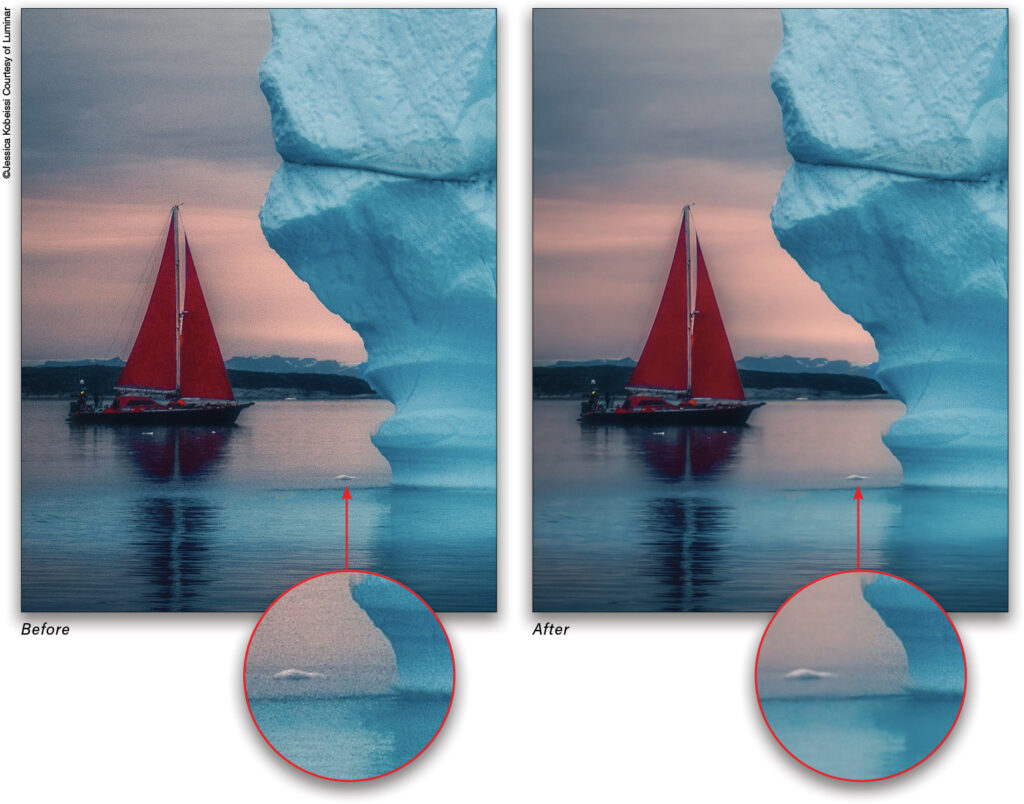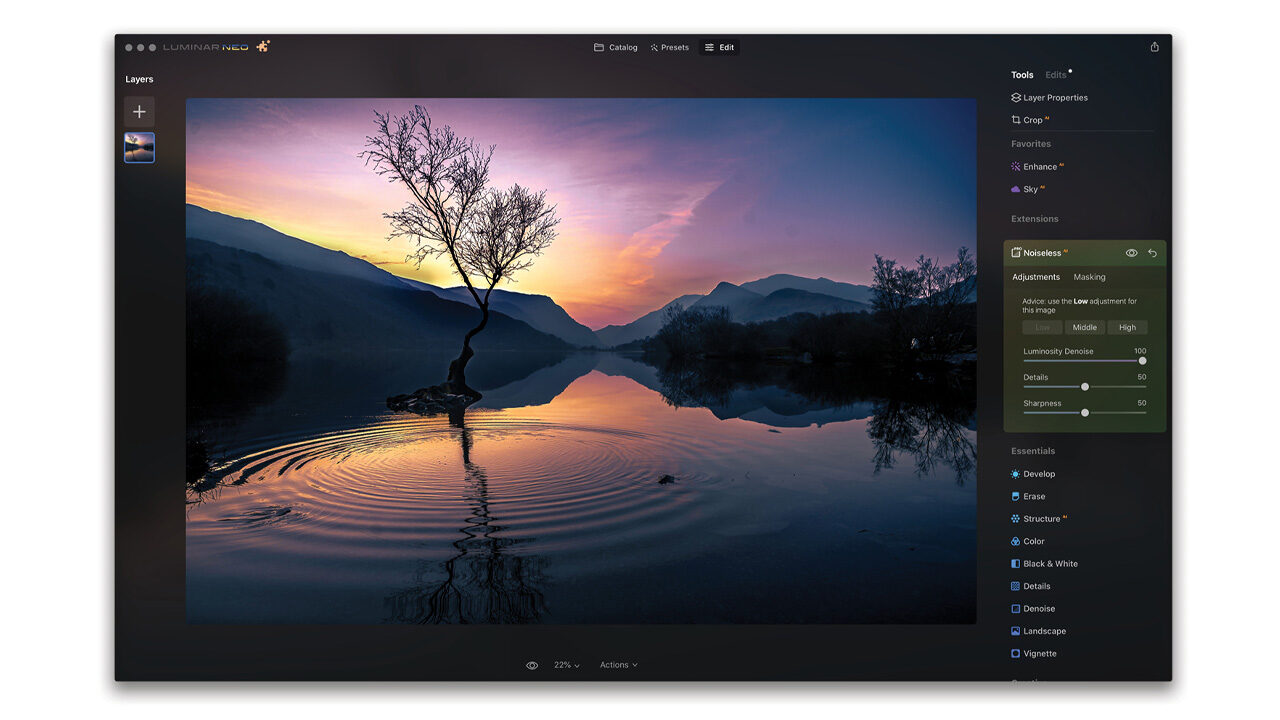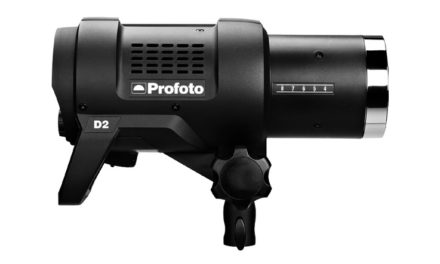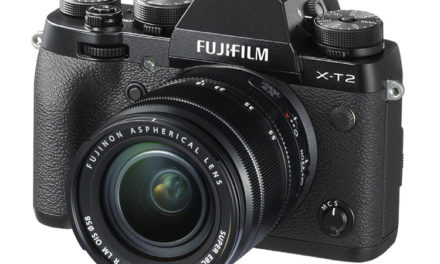Noise Reduction Powered by AI
Review by Dave Williams
Noiseless AI is the latest Extension to Luminar Neo by Skylum. It’s comparable to several other pieces of software that serve to reduce noise using machine learning (ML), artificial intelligence (AI) technology; but the power and the user interface are just so much more sleek and powerful with the Noiseless AI extension. [For more on Luminar Neo and how its Extensions work, check out “Maximum Workflow” in the September 2022 issue of Photoshop User.—Ed.]
The level of noise reduction is controlled primarily by three options: Low, Middle, and High. Luminar Noiseless AI will recommend the preset option that will work best with your image. Secondarily to this, there are sliders controlling Luminosity, Denoise, Details, and Sharpness. To control affected areas of the image, there are also Masking options, including a Brush, Linear Gradient, Radial Gradient, and an additional feature called Mask AI, which uses AI to determine where the mask should be applied.

I ran several images through Noiseless AI to test its capabilities and haven’t been disappointed, even with severely noisy images taken at night with a moonless night sky and the aurora over dark landscapes. There’s not much more to say, though, when a piece of software simply does exactly what it’s supposed to.
Noiseless AI sits within the Luminar Neo ecosystem and is also available as a plugin for Adobe Photoshop and Lightroom Classic. All of the methods of using Noiseless AI perform equally effectively.
Skylum takes care to invest carefully in their technology and education, and that’s reflected in Noiseless AI and Luminar Neo as a whole. When making a purchase, it’s worth considering that Luminar Neo, along with all its Extensions, is comparable to the competitors, such as ON1 and Topaz Lab.
Overall, I’m very impressed with Luminar Neo Noiseless AI and its simplicity in creating complex adjustments to noisy photos, therefore it’s a 5-star rating from me.






